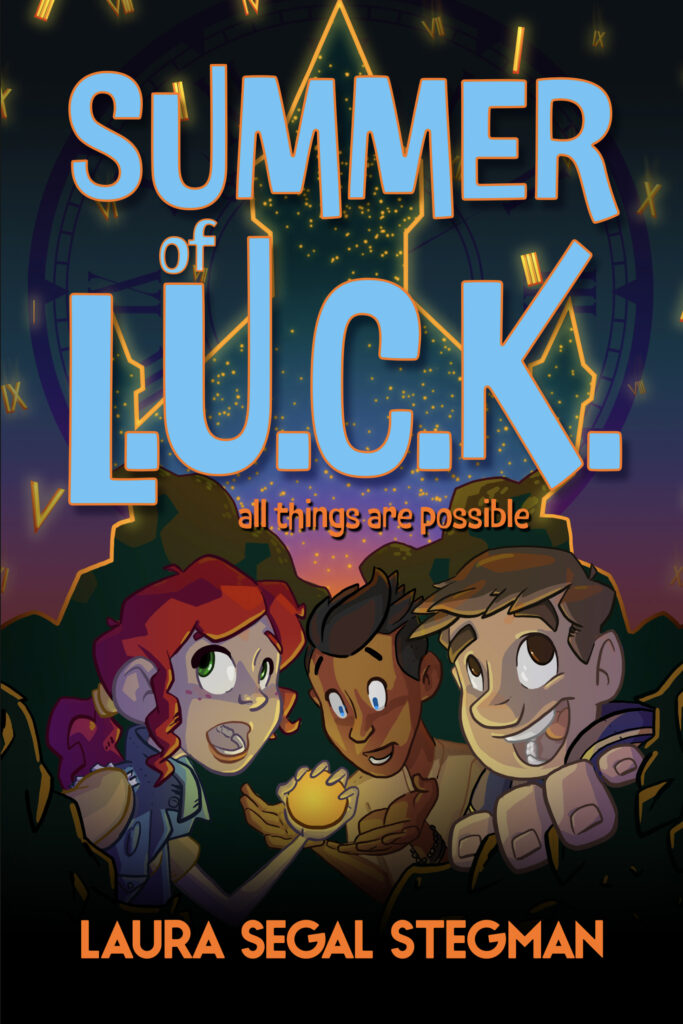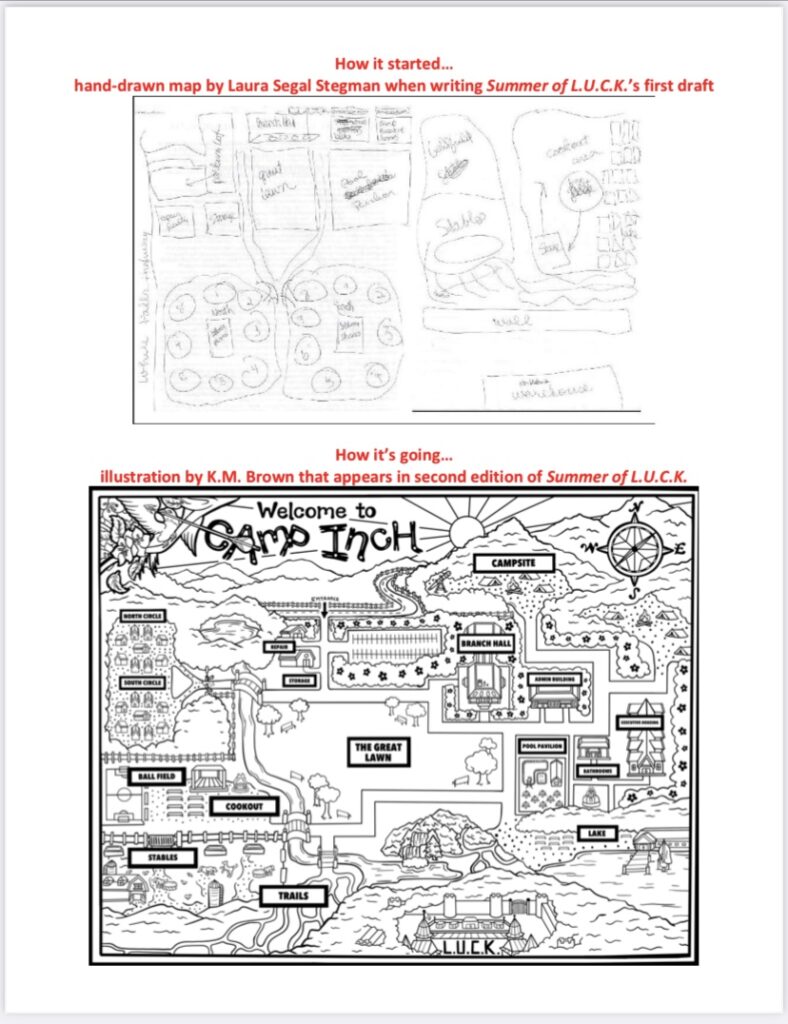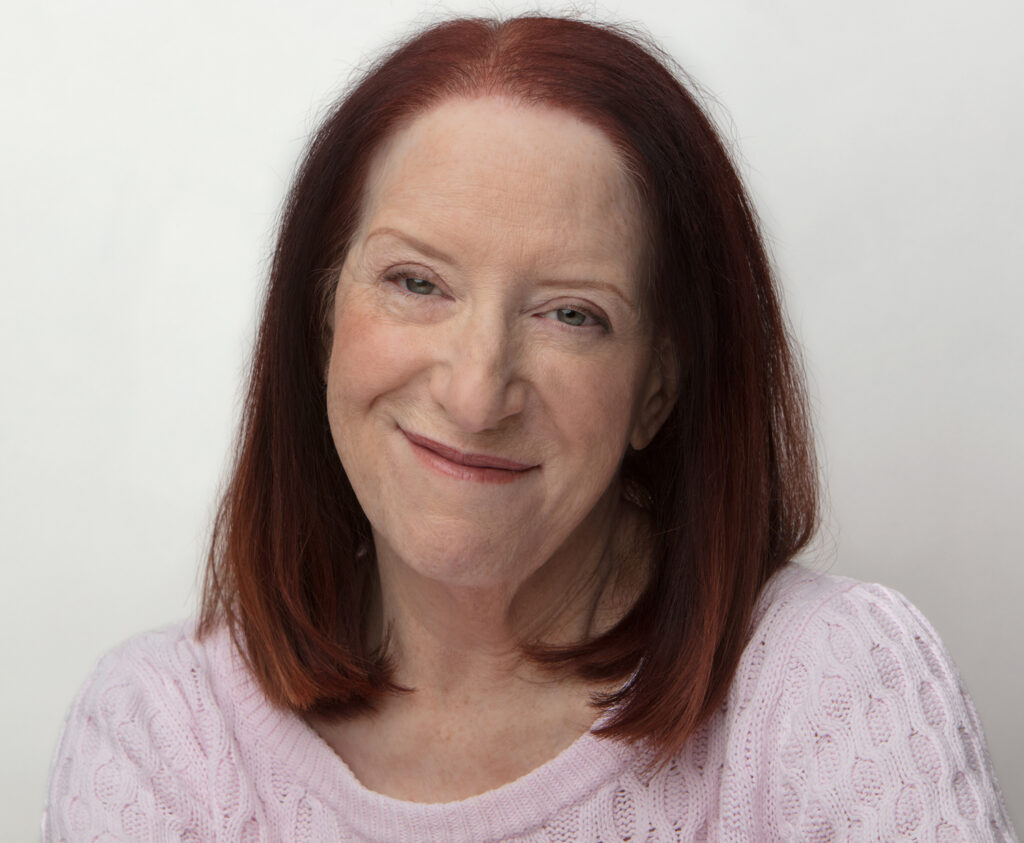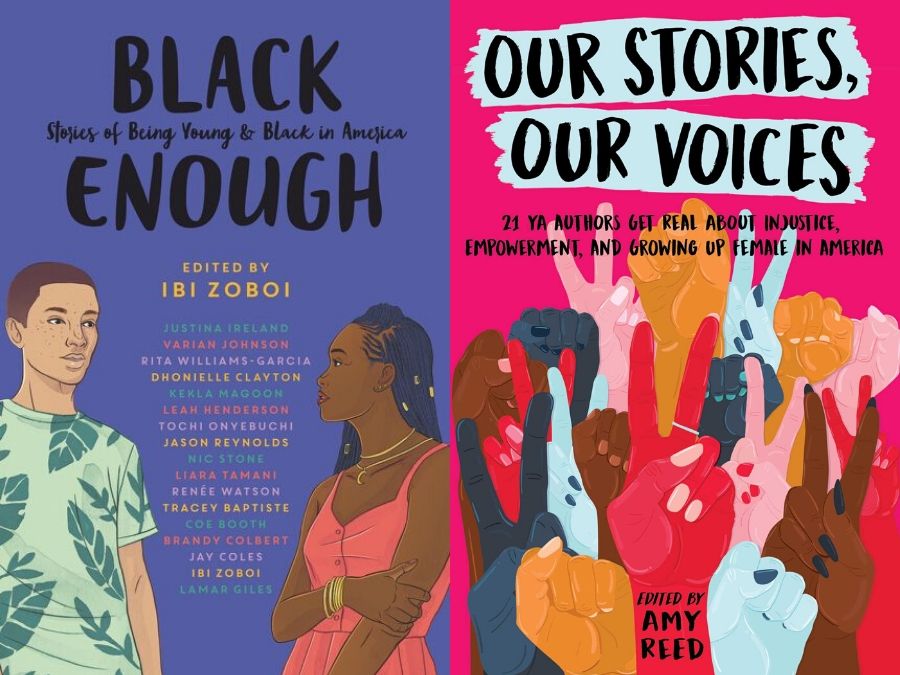Never Give Up! How my long and winding journey to publication taught me the value of perseverance, a guest post by Laura Segal Stegman

As I navigated my way from novice novelist to published author, I made a surprising discovery. What helped me more than anything wasn’t ability, imagination, smarts, or contact with other writers. Each was important, of course. But I became a published author because I learned to persevere no matter what.
Perseverance, to me, is faith in four syllables. I like to think of it as faith in myself, faith in the process, and faith in my dream, even when faced with rejection after rejection, obstacle after obstacle.
ADVERTISEMENT
ADVERTISEMENT
Let’s start with four facts:
1. Summer of L.U.C.K., my debut middle grade novel, took some 20 years from when I started it to publication.
2. Its sequel, Ready or Not, took 16 months to write.
3. The Chambered Nautilus, the third and final in the L.U.C.K. trilogy, took 12 months.
4. Practice makes — well, progress!
Before turning to fiction, I had sharpened my storytelling skills via my work as an arts publicist, and I had done some freelance news feature writing for newspapers and magazines. I thought I was well-equipped to write a novel. And after finishing the very first draft of Summer of L.U.C.K., I was downright impressed with myself. Surely agents would be, too! In fact, they were universally unimpressed. And uninterested.
Soon, I realized that there was a big difference between fiction writing – especially for middle grade readers – and non-fiction. Both begin by drawing in the reader, but here are two examples of how they vary. The first is that news writing is structured with the most important information first, whereas much of what is revealed in fiction comes once the story is well underway. Second, I used an adult’s “voice,” or point of view, as is standard for news writing, in many of my early novel’s drafts, but that is typically avoided in books for kids.
After facing the fact that my first draft of Summer of L.U.C.K. needed work, I went back to basics. I began reading as many contemporary middle grade books as I could. I found a development editor, who taught me everything I didn’t know about fiction writing. I learned all I could about the publishing business through webinars, podcasts, social media, and media interviews with writers and agents. I took advantage of every opportunity I could to get feedback from mentors, writing forums, and even a classroom full of middle schoolers. I made a list of affirmations, one for every day of the month, that I (still) read each morning to keep myself inspired. (My favorite: This can happen for me.) Most helpful of all, I sought and found critique partners so we could read and critique each other’s work.

Through it all, I re-wrote and revised Summer of L.U.C.K. more times than I can remember. While the essence of my story didn’t change, I learned to tell it better. Pieces of the plot were altered, scenes and characters were expanded or often eliminated, POVs were adjusted, conflict was added, and stakes were raised.
Along with more rejections, some agents started replying to my queries with requests for partial or full manuscripts, which suggested I was headed in the right direction. Although more rejections followed, I kept at it. Based on feedback from an agent who’d rejected my full manuscript, I changed the ending, which was one of the best decisions I made. I kept working to improve. And it wasn’t easy. One snide writer’s forum post suggesting I give up on it stung almost as much as the agent rejections.
I never fully got over taking those rejections personally, but I did learn to keep going. Here’s why. When I started Summer of L.U.C.K., it was my hope that its story of three kids finding their way to self-acceptance would mean as much to readers today as my favorite books growing up had meant to me. I believed in my story. I believed in my characters. I believed in Summer of L.U.C.K., and I never gave up. With every rejection, I worked harder to improve the narrative and the writing.
Finally, the book was good enough to get a “yes” from a publisher. Not only a yes, but a contract for two sequels. Talk about a dream come true!
Is that the end of my tale? Not quite. Less than a year after Summer of L.U.C.K. was published and several months before Ready or Not, its sequel, was set to follow, my publisher closed its doors and the rights reverted. After recovering from the shock, I vowed I would not let the series die. One way or another, I would find a way to get Summer of L.U.C.K. reissued and the two sequels published. With a lot of luck – and perseverance – I was signed by a new publisher, which has now reissued L.U.C.K., and will publish Ready or Not and The Chambered Nautlius next year. I hope my experiences inspire writers to keep going, despite what they’re struggling with.
As an epilogue to Summer of L.U.C.K.’s journey, I’ll tell you one last thing that speaks to the value of perseverance. In March of this year, I began thinking about my next book and what shape it would take. I had a shell of a concept and some notes but no idea how to make it into a good story. April came and went with no clarity. So did May.
ADVERTISEMENT
ADVERTISEMENT
At first, I panicked. Were my first three books flukes? Had I lost my ability to write? It seemed possible! Then my old friend – faith in four syllables – filtered through my head, and my precious tool of perseverance urged me on. In early June, I opened a Word doc and typed my notes into the file, hoping that might trigger something. Before I knew it, I had a first line. Then a first paragraph. I returned to my habit of writing every day, even if I didn’t come up with many words. I kept at it, and guess what? Perseverance worked, as it had earlier. Today, I am closing in on the end of Chapter Nine, almost halfway done. If I’ve learned anything in my work as a writer, it’s this: never give up.
Meet the author

Laura Segal Stegman is a Los Angeles-based arts publicist and author whose middle grade debut novel, Summer of L.U.C.K. (Young Dragons Press), will be followed by two sequels. L.A. Parent Magazine lauded Summer of L.U.C.K. as a “good read,” Readers’ Favorite awarded it 5 Stars, and a Macaroni Kid reviewer said, “I was instantly captivated and couldn’t put it down.” Laura serves as a judge for Society of Young Inklings and Society of Children’s Book Writers and Illustrators (SCBWI) writer competitions, and she shares her author journey in engaging virtual and in-person visits to schools and libraries. Her non-fiction credits include collaboration on the travel book Only in New York. Her feature stories have appeared in the Los Angeles Times and Los Angeles Magazine. A long-time publicity consultant, she owns Laura Segal Stegman Public Relations, LLC, which has represented a wide-ranging client list of businesses, arts organizations and non-profit events over the years. She is a Phi Beta Kappa graduate of UC Irvine with a B.A. in Drama. www.LauraStegman.com
Web site: LauraStegman.com
Twitter: @LauraStegman
Instagram: @laura_stegman
Facebook: LauraSegalStegmanAuthor
About Summer of L.U.C.K
Stuttering Darby is never perfect enough for her mother. Justin’s been silent since his dad died. Naz is struggling to learn English. But after they meet at summer camp, mysterious calliope music from an abandoned warehouse grants them power to communicate without words. When they sneak inside, the dark, empty space bursts into a magical carnival. They’re greeted by the ghost of Leroy Usher, who asks for their help convincing his family to restore the carnival to its former glory. In return, he promises to teach the kids how to find their voices.
As Darby, Justin, and Naz are swept off on a series of midnight adventures via Mr. Usher’s carnival rides, they discover they’re capable of more than they ever imagined. With each challenge, their confidence in communicating – and in themselves – grows. Meanwhile, they scheme to persuade the Usher family to revive the carnival. But when Darby’s bunkmates trick her into starring in the camp talent show, her budding confidence falters. Can she risk being less than perfect by performing in the show and speaking up to Mr. Usher’s resistant son? If not, she’ll put the carnival in danger and sabotage her most important quest: to believe in herself, stutter and all.
Filed under: Guest Post
About Amanda MacGregor
Amanda MacGregor works in an elementary library, loves dogs, and can be found on Twitter @CiteSomething.
ADVERTISEMENT
ADVERTISEMENT
SLJ Blog Network
Name That LEGO Book Cover! (#53)
Cover Reveal and Q&A: The One and Only Googoosh with Azadeh Westergaard
K is in Trouble | Review
Fighting Public School Book Bans with the Civil Rights Act
ADVERTISEMENT







